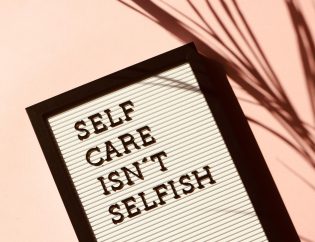
 Mental health encompasses emotional, psychological, and social wellness, influencing thoughts, feelings, and actions. It serves as a cornerstone for navigating life's complexities, from managing stress to nurturing meaningful relationships and making sound decisions. Fostering good mental health is a lifelong journey. It empowers resilience and cultivates a hopeful perspective on life's possibilities. Yet, amidst life's ebbs and flows, we acknowledge that challenges with mental health can alter our perceptions, moods, and behaviors.
Mental health encompasses emotional, psychological, and social wellness, influencing thoughts, feelings, and actions. It serves as a cornerstone for navigating life's complexities, from managing stress to nurturing meaningful relationships and making sound decisions. Fostering good mental health is a lifelong journey. It empowers resilience and cultivates a hopeful perspective on life's possibilities. Yet, amidst life's ebbs and flows, we acknowledge that challenges with mental health can alter our perceptions, moods, and behaviors.
Mental health disorders vary from subtle to profound. The National Institute of Mental Health reports that almost one-fifth of adults grapple with mental health issues. Various elements play a role in the development of mental health disorders, including biological aspects like genetics and brain chemistry, personal experiences such as exposure to trauma or abuse, and a family background with a history of mental health challenges.
Living with a mental illness can often feel isolating, as if you're navigating a complex journey all on your own. However, it's essential to remember that you are not alone in this experience. Countless individuals understand and empathize with the challenges you face, and supportive communities and resources are available to offer comfort, guidance, and companionship. It's okay to seek help and lean on others when needed; strength can be found in unity and shared understanding. You are valued, you are deserving of support, and most importantly, you are not alone.
Keep reading our blog to dive deeper into mental health disorders and dispel common mental health misconceptions.
May is Mental Health Awareness Month
May is recognized as Mental Health Awareness Month, dedicated to raising awareness about mental health issues, promoting understanding, and advocating for support and resources. This observance aims to reduce the stigma surrounding mental health conditions and encourage individuals to seek help when needed.
Throughout May, various organizations, communities, and individuals come together to share information, stories, and resources to educate the public about the importance of mental well-being and the significance of early intervention and treatment. This serves as a reminder that mental health is integral to overall health and well-being and deserves the same attention and care as physical health.
Some common mental health conditions include:
- Anxiety disorders (including generalized anxiety, panic disorders, obsessive-compulsive disorder (OCD), phobias, and social anxiety)
- Bipolar disorder
- Borderline personality disorder (BPD)
- Depression
- Eating disorders (including anorexia nervosa, binge eating disorder, and bulimia nervosa)
- Post-traumatic stress disorder (PTSD)
- Schizophrenia
- Seasonal affective disorder (SAD)
- Self-harm
- Suicide and suicidal behavior
Navigating the complexities of mental health can be challenging, especially when surrounded by a multitude of misconceptions and stereotypes that often cloud understanding. In a world where mental health awareness is growing, it's crucial to address and debunk these myths to foster a more informed and compassionate society. This blog delves into common misconceptions about mental health, shedding light on the realities and offering insights to promote greater understanding and support for those affected.
Common Mental Health Misconceptions
Myth: Mental illness is rare.
Truth: Contrary to this misconception, mental health conditions are quite common and affect a significant portion of the population worldwide. It is estimated that more than one in five U.S. adults live with a mental illness. In 2021, 57.8 million Americans lived with a mental health illness. About one in 20 U.S. adults live with a serious mental illness, such as schizophrenia, bipolar disorder, or major depression. This means that mental illness is far from rare; it is a widespread concern that can impact anyone, regardless of age, gender, ethnicity, or socioeconomic status.
The misconception that mental illness is rare can contribute to stigma and misunderstandings, as people may mistakenly believe that those experiencing mental health challenges are outliers or exceptions.
Myth: People who live with a mental illness are dangerous.
Truth: A pervasive myth that continues to perpetuate the stigma surrounding mental illness is the unfounded belief that people living with mental health conditions are inherently dangerous. This misconception is not only inaccurate but also harmful, as it can lead to discrimination, fear, and social isolation for individuals grappling with mental health challenges.
Research consistently demonstrates that the vast majority of people with mental illnesses are not violent or dangerous. Only three to five percent of violent acts can be attributed to individuals living with a serious mental illness. People with severe mental illnesses are more than ten times more likely to be victims of violent crime than the general population.
It is crucial to understand that mental illness does not define a person's character or predict their behavior. Like anyone else, individuals with mental health conditions are diverse, with unique personalities, strengths, and experiences.
Myth: Mental illness is a sign of weakness.
Truth: Another damaging myth surrounding mental illness is the misguided belief that it is a sign of weakness or a character flaw. This misconception not only undermines the complexities of mental health but also perpetuates stigma, discouraging individuals from seeking help and support when they need it most.
In reality, mental illness is not a reflection of weakness but rather a medical condition that can result from a combination of biological, psychological, and environmental factors.
Mental health conditions are legitimate medical conditions that require proper diagnosis, treatment, and ongoing care. Seeking help for mental health concerns shows strength, resilience, and self-awareness. It takes courage to acknowledge one's struggles, get support, and actively engage in healing and recovery.
By dispelling the myth that mental illness is a sign of weakness, we can promote a more compassionate and understanding view of mental health, encouraging individuals to prioritize their well-being, seek help without shame or judgment, and access the resources and treatments they need to thrive.
Myth: Therapy and medication are the only treatment options for mental illnesses.
Truth: One common misconception about treating mental illness is the belief that therapy and medication are the only effective treatment options available. While therapy and medication can be valuable and beneficial components of mental health treatment, they are not the only approaches and may not be suitable or effective for everyone. Mental health treatment is multifaceted, and various interventions and strategies can be tailored to meet each person's individual needs and preferences.
Here are five additional treatment options and approaches for mental health conditions:
- Lifestyle Changes: Regular physical activity, maintaining a balanced diet, getting adequate sleep, and avoiding alcohol and substance use can play crucial roles in improving mental well-being.
- Mindfulness and Meditation: Practices like mindfulness, meditation, and deep-breathing exercises can help reduce stress, enhance self-awareness, and promote emotional balance.
- Support Groups: Participating in support groups or peer-led programs can provide individuals with a sense of community, validation, and understanding, facilitating healing and recovery through shared experiences and mutual support.
- Holistic Therapies: Alternative and complementary therapies, such as acupuncture, yoga, massage therapy, and art or music therapy, can complement traditional treatments, help individuals cope with symptoms, and improve overall well-being.
- Cognitive Behavioral Therapy (CBT): CBT is a specific type of therapy that focuses on identifying and challenging negative thought patterns and behaviors, teaching coping skills, and promoting positive change.
It's essential to recognize that mental health treatment should be individualized and tailored to address each person's unique needs, preferences, and circumstances. By dispelling the myth that therapy and medication are the only treatment options for mental illness, we can promote a more comprehensive, holistic, and personalized approach to mental health care.
How to Combat Mental Health Misconceptions
By educating ourselves and others about mental health issues, we can encourage open conversations and promote access to necessary resources and treatments. By dispelling myths, we can challenge stereotypes, reduce stigma, and foster a more inclusive and supportive community for all.
Education equips individuals with knowledge and resources to recognize the signs of mental health issues, facilitating early intervention, timely access to appropriate care and support, and improved mental health outcomes and recovery.

Education provides individuals with the information, tools, and confidence to prioritize their mental health, communicate their needs, and access the necessary resources, treatments, and support services to manage and overcome mental health challenges effectively.
Education empowers individuals to become advocates for mental health, promoting policy change, advocating for improved access to quality mental health care, funding, research, and support services, and fostering societal change and transformation.
Twin Branch Wellness & Recovery for Women
Embracing a deeper understanding of mental health not only fosters the growth of coping mechanisms and adaptive strategies but also cultivates resilience in facing life's hurdles. By dispelling misconceptions, we create space for individuals to learn to manage stress, confront adversity, and maintain mental and emotional balance.
Twin Branch Wellness & Recovery for Women is the only residential treatment program in Virginia dedicated exclusively to women at this level of care. We accommodate up to 19 adult women who have made the courageous decision to seek treatment for substance use disorder. We provide 24/7 medical and support care and offer various treatment options based on research and evidence-based practices.

Twin Branch focuses on women-specific curricula and therapies to overcome addiction, chemical dependencies and to help you learn how to best manage your mental health. We help you to understand the impact of trauma, which may be a big T, little t, or even a T that is defined as a lack of good. Twin Branch will provide you with insights and tools to help develop meaningful connections.
We believe that women in recovery face unique challenges. Substance use disorder and mental illness often feed off each other in an unrelenting cycle. At Twin Branch, we partner with you to uncover your history, triggers, and coping skills needed to manage both challenges for a brighter future.
What's your story? Are you ready to start a new chapter? Are you ready to live a healthier and more fulfilling life? If you or someone you love are struggling with substance abuse, Twin Branch Wellness & Recovery for Women is here to help you begin your recovery journey. It is never too late or too soon to choose wellness and develop the tools necessary to manage life's demands.










